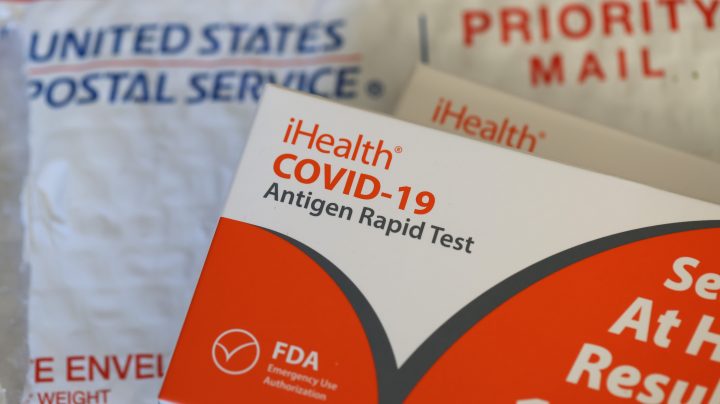
Federal funding for COVID testing and treatment for the uninsured has run out
Federal funding for COVID testing and treatment for the uninsured has run out

The federal government is no longer covering the cost of COVID-19 testing and treatment for people who don’t have health insurance. That’s because federal COVID funding is running out. The White House has asked Congress for another $22.5 billion for testing, vaccines and treatments, but so far, no response.
For most of the pandemic, Dr. Kavita Patel has told her patients the same thing: Come in, get a COVID test, get the vaccine, it’s free.
“Have your family come, they don’t need to be a patient, they don’t need, you know, an insurance plan. And I’ve had to basically go back on that,” said Patel, a primary care doctor at a community health center in Washington, D.C. Most of her patients are uninsured.
“We just found out last week that starting this week, we would not have funding for testing and for any therapeutics as well. So this is it,” she said.
After Monday, hospitals and doctors’ offices won’t be reimbursed for testing or treating uninsured patients for COVID. Starting in early April, they won’t be reimbursed for vaccinating them, either.
Jennifer Tolbert, the director of state health reform at the Kaiser Family Foundation, said depending on the provider, that could mean one of two things.
“Some providers may simply stop providing services to uninsured individuals,” she said. But others, mostly hospitals and community health centers that are considered “safety net” providers, will continue treating patients, either for free or on a sliding scale.
“But it will increase the financial burden on these providers,” Tolbert said.
There is an emergency Medicaid option that can allow states to continue offering free COVID testing and treatment to people without insurance. But Loren Adler, the associate director of the USC-Brookings Schaeffer Initiative for Health Policy, said that less than half of states have opted in.
And he said if people are confused about whether or not they’re going to have to pay, it could impact testing and vaccinations.
“You will also just see uninsured patients much less likely to bother getting COVID-19 testing in this situation,” he said, which is not what you want when there’s still a pandemic going on.
There’s a lot happening in the world. Through it all, Marketplace is here for you.
You rely on Marketplace to break down the world’s events and tell you how it affects you in a fact-based, approachable way. We rely on your financial support to keep making that possible.
Your donation today powers the independent journalism that you rely on. For just $5/month, you can help sustain Marketplace so we can keep reporting on the things that matter to you.


















